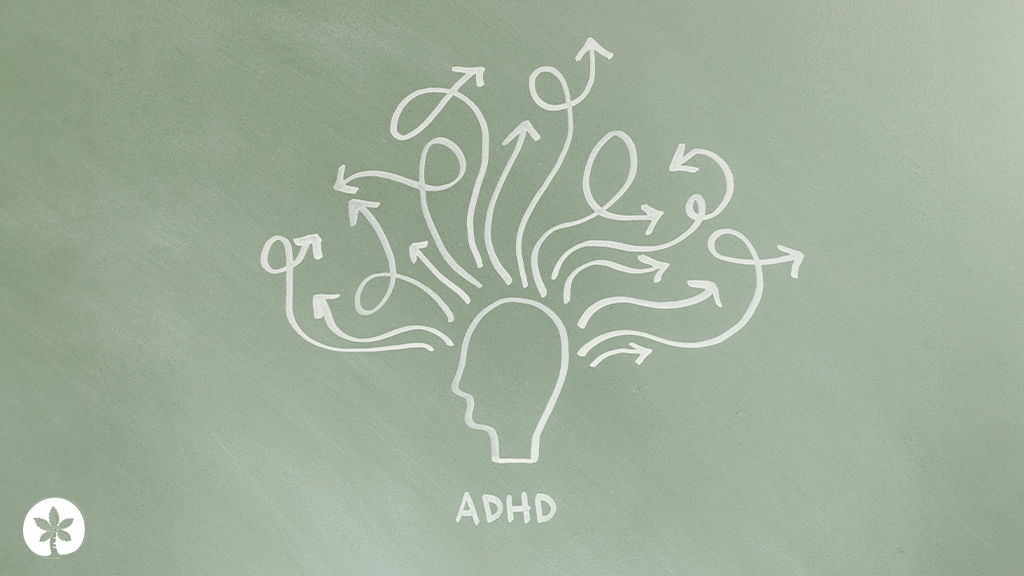Understanding ADHD: Navigating Life with Attention Deficit Hyperactivity Disorder
IntroductionAttention Deficit Hyperactivity Disorder (ADHD) is a neurodevelopmental disorder that affects millions of people worldwide. Characterized by symptoms of inattention, hyperactivity, and impulsivity, ADHD can present unique challenges in academic, professional, and personal life. At Saname Counseling, we understand the complexities of ADHD and provide tailored support to help individuals manage their symptoms and thrive. What Is ADHD? ADHD is not simply a behavioral issue but a neurological condition that affects the brain’s ability to regulate attention and impulses. According to the Centers for Disease Control and Prevention (CDC), ADHD affects approximately 5-10% of children and about 4% of adults worldwide (CDC, 2021). ADHD is diagnosed based on a combination of behavioral symptoms, which are classified into three main categories: Inattention – Difficulty staying focused, easily distracted, forgetting instructions or details, and struggling to complete tasks. Hyperactivity – Being excessively energetic, unable to sit still, or constantly fidgeting. Impulsivity – Making quick decisions without considering consequences, interrupting conversations, or having difficulty waiting for one’s turn. It’s important to recognize that ADHD is not a result of poor parenting or laziness, but rather a complex interaction of genetic and environmental factors that affect brain function. How ADHD Impacts Daily Life ADHD can affect many aspects of life, including academics, work, and relationships. Academic Challenges: Children and adults with ADHD may have difficulty staying organized, completing assignments, or following instructions. These challenges can lead to lower grades, feelings of inadequacy, and frustration (American Psychological Association, 2020). Workplace Struggles: In the workplace, individuals with ADHD often find it hard to stay organized, manage time effectively, or complete tasks on schedule. Research from the National Institute of Mental Health (NIMH) shows that untreated ADHD can affect professional success, leading to lower job performance and higher turnover rates (NIMH, 2021). Relationship Issues: Impulsive behaviors and difficulty regulating emotions can create tensions in relationships with family, friends, and partners. Individuals with ADHD may unintentionally interrupt, make rash decisions, or struggle to maintain long-term commitments (Psychology Today, 2020). Self-Esteem Concerns: The challenges associated with ADHD can take a toll on an individual’s self-esteem. As they face repeated setbacks in school, work, or relationships, many individuals may experience anxiety, depression, and feelings of failure (National Resource Center on ADHD, 2020). Treatment and Support for ADHD While ADHD is a lifelong condition, it is manageable with the right treatment plan. Here at Saname Counseling, we provide evidence-based interventions to help individuals manage their symptoms and improve their quality of life. Cognitive Behavioral Therapy (CBT): CBT is a highly effective form of psychotherapy that helps individuals with ADHD develop coping strategies, improve organizational skills, and regulate emotions. Studies show that CBT can significantly reduce symptoms and improve functioning in both children and adults with ADHD (American Journal of Psychiatry, 2017). Medication Management: Medication can play an important role in managing ADHD symptoms. Stimulant and non-stimulant medications are commonly prescribed to help improve focus, reduce hyperactivity, and control impulsive behaviors. At Saname Counseling, we work with healthcare professionals to ensure that medication, if recommended, is part of a comprehensive treatment plan tailored to each individual’s needs (National Institute of Mental Health, 2021). Parent Training and Support: For families with children diagnosed with ADHD, parent training is crucial. Parents are guided on how to create structured routines, set clear expectations, and implement behavioral strategies to help manage their child’s behavior. Research shows that effective parent training programs can reduce disruptive behaviors and improve family dynamics (American Academy of Pediatrics, 2019). Mindfulness and Behavioral Strategies: Mindfulness practices, time management techniques, and organizational strategies can help individuals with ADHD manage distractions and improve focus. Studies suggest that mindfulness-based interventions can help reduce ADHD symptoms by improving emotional regulation and attention span (Journal of Attention Disorders, 2018). Living Well with ADHD With proper treatment and support, individuals with ADHD can lead fulfilling lives. Here are some tips to help manage ADHD symptoms effectively: Establish Routines: Create a structured daily routine to minimize distractions. Use visual reminders, planners, or digital apps to stay organized and on track. Break Tasks Into Steps: Large tasks can feel overwhelming. Break them down into smaller, manageable steps to make them more achievable. Practice Self-Care: Regular exercise, a balanced diet, and sufficient sleep are essential for managing ADHD symptoms. Physical health directly influences cognitive and emotional well-being. Seek Support: Therapy, medication, and support groups can provide invaluable assistance in managing ADHD. Reach out to a professional for guidance and support. Get Support from Saname Counseling At Saname Counseling, we specialize in offering compassionate, evidence-based support for individuals with ADHD. Whether you are seeking therapy for yourself or a loved one, our team of licensed counselors and therapists is here to guide you every step of the way. If you or someone you know is struggling with ADHD, we invite you to contact us today for a consultation. Together, we can develop a personalized treatment plan that empowers you to live your best life. Contact Us for Support If you are ready to take the next step in managing ADHD, Saname Counseling is here to help. Our team is available to answer your questions and assist you in getting started with a tailored treatment plan. Contact Us
Understanding ADHD: Navigating Life with Attention Deficit Hyperactivity Disorder Read More »

